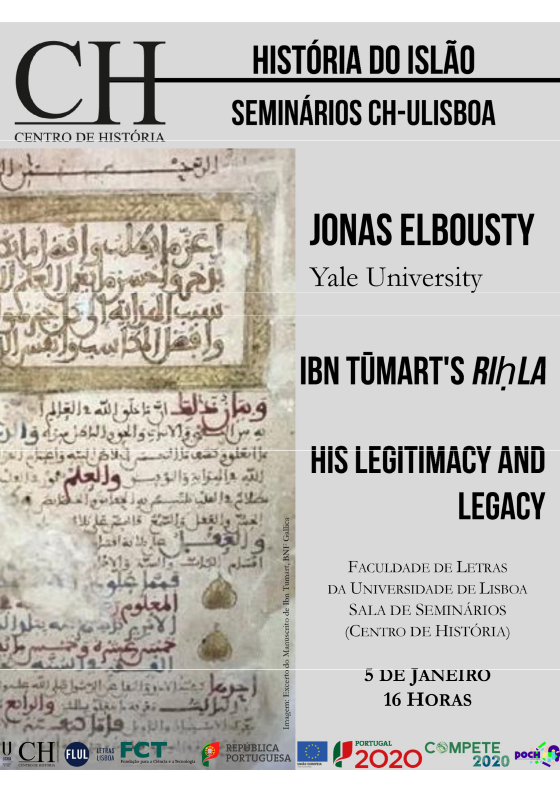Ibn Tūmart's Riḥla, His Legitimacy and Legacy | Ciclo de Seminários de História do Islão | Seminários CH-ULisboa
Faculdade de Letras da Universidade de Lisboa, Sala de Seminários (Instalações CH-ULisboa), 5 de Janeiro de 2018, às 16:00
Organização | Centro de História da Universidade de Lisboa
Descarregar cartaz

Framed within debates of authenticity, a reported encounter between Ibn Tūmart (d. 524/1130), the founder of Almohads; and al-Ghazalī (d. 505/1111), the iconic scholar of Islamic theology and law, has been either dismissed as a chronological impossibility, or accepted as an unconfirmed event. In both, the line of inquiry guiding the evaluation of this event adheres to scholarly approaches particular to our contemporary standards, and in both, the political and spiritual genealogies advanced through this detail, are excluded from our considerations of Ibn Tūmart’s project. Against an examination of specific sections in A‘azz Mā Yuṭlab, this paper examines the encounter as a khabar whose full implications can only be discerned by prioritizing the resonance it promised to carry in the eyes of Ibn Tūmart’s audiences, whose subscription to the new ideology, I propose, must have inspired the circulation of the report in the first place.
Instead of a focus on the origin and historicity of the encounter, the paper looks at its perception as an opportunity, first, to analyze how the narrative serves as an important stage of reconciling the eclectic elements through which Ibn Tūmart’s legitimacy was constructed; and second, to examine how this encounter helped develop decisive features of Ibn Tūmart’s doctrine. How the riḥla, the prophetic invocation, and the confirmation of apocalyptic signs–whose messianic implications would have been readily recognized at the time, find validation in the khabar of the encounter will serve as a perspective to revisit the legacy of Ibn Tūmart as it came to be presented within the political ventures of his successors. Entrada livre.

